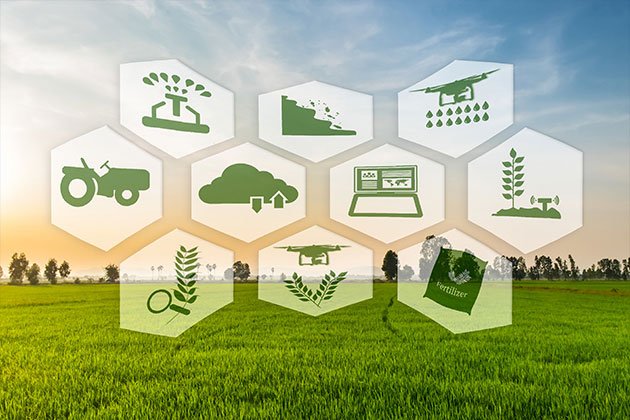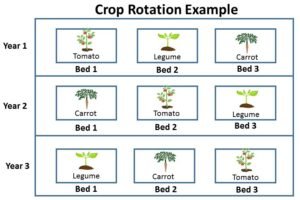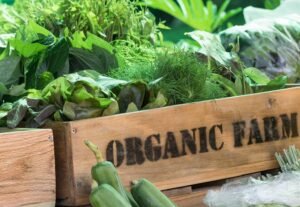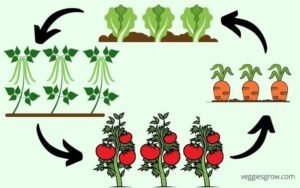Organic vs Sustainable Agriculture
The traditional farming practices have now been handed down from generation to generation and have been modernized adopting the techniques of western nations. This conventional farming method has helped India in producing enough food for the consumption purpose for the whole nation and has also generated a surplus amount of food for exporting them, but the increasing population and the income has led to further increase in the demand for food and also for the raw materials to the agricultural industry.
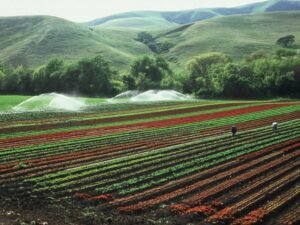
How to make organic Jeevamrutha ? Read more
Due to the decline of Crop productivity and the damages it does to the environment along with some chemical combination like genetic modification, this modern system of farming has become an unsustainable approach, so there is a need of an alternative Agriculture method which can function as an eco friendly method and also help in increasing the crop productivity while sustaining it.
Organic farming is recognised as the best known alternative to this form of Modern Agriculture but the progress of Organic Agriculture in India is very slow being 41000 ha of Organic farms of the total cultivated area which is just 0.03% of it.
Agriculture has always been challenging in maintaining the sustainability of the whole system and Sustainable Agriculture plays an essential role in contributing towards Sustainable development. According to the Food and Agriculture Organisation (FAO), “Sustainable Agriculture is the successful management of resources for Agriculture to satisfy challenging human needs while maintaining or enhancing the quality of the environment and conserving natural resources.” Out of the several approaches, Organic farming has been found to meet the objectives of Sustainable Agriculture.
The central theme of Organic Agriculture is maintaining the health of the soil and utilising the techniques such as intercropping, mulching and integration of crops and livestock and it is also the most widely used methods taking it as the best alternative to avoid all the ill effects of chemical farming.
How to do Integrated Farming System? Read more
Organic farming and sustainable Agriculture are often used interchangeably. So, are both these terms closely connected OR do they refer to two distinct concepts ?
Let’s find this out in this article.
Organic Agriculture
According to the Department for Agriculture and rural affairs, “Organic food is the product of a farming system which avoids the use of man made fertilisers, pesticides, growth regulators and livestock feed additives.” The use of genetically modified organisms is generally prohibited by the Organic legislation.
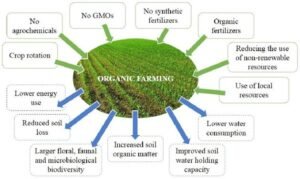
Organic farming is focused on maintaining and improving the natural balance of the environment, using only Organic fertilisers to create toxin free food for the consumers, maintaining the fertility of the soil and promoting environmentally responsible and long-term economic development.
Organic foods have a huge demand in the domestic market being appropriate for the small farmers here and it has also emerged as an alternative system of farming that not only addresses quality and sustainability concerns but it also ensures debt free future and it is also focused on increasing awareness about the safety and quality of food.
How to do Intercropping in Organic Agriculture? Read more
It helps in reducing poverty and also provides food security through a variety of factors which includes:
- High yield with low input
- Biodiversity and natural resources conservation
- Increase in revenues
- Quality food that are both safe and diverse
- Long term sustainability
Common Organic practises
- Crop rotations and cover crops are used for the maintenance of nutrient levels in the soil. Cover crops also help in reducing soil erosion.
- Manure and other Organic certified substances are applied in the soil for the improvement of soil health.
- The soil is regularly cultivated two to three times per week for controlling the weed growth.
- Genetically modified seeds are avoided in plantations. Sewage Sludge, Ionising radiation and Genetic Engineering are totally prohibited in Organic farming.
- The crops are maintained without using chemical pesticides and for producing Organic crops, Organic seeds are planted.
Sustainable Agriculture
According to the Brundtland Report for the World Commission on Environment and Development, “Sustainable development is defined as the development that meets the needs of the present without compromising the ability of future generations to meet their own needs.”
How to do pest disease management in organic agriculture? Read more
Sustainable farming aims at minimizing the depletion of natural resources and preserving higher levels of Organic matter in the soil, reducing erosion and keeping more carbon in the soil.
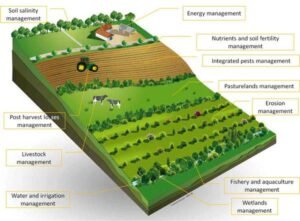
Sustainable farmers own smaller pieces of land, producing less but diverse crops, that enriches the soil and helps in sustaining the land. Water conservation is the crucial part of Sustainable Agriculture. It uses methods such as reclaimed water and drip irrigation, that limits the flow of water and ensures that no water is wasted because of evaporation or crop competition.
Sustainable Agriculture uses renewable resources like wind, solar power, or water in all the processes of farming as it is a way of farming which uses its resources efficiently without depleting them, proving its longevity and endurance.
The farmers performing Sustainable Agriculture care for their animals and provide more space to roam, creating a better life for livestock and ecosystem as well, thereby producing more food for the humans.
Latest updates on organic farming of vegetables. Read more
Sustainable farming practices
- Implementation of Reduced tillage or No till farming
- Uses Cover crops for reducing soil erosion
- Maximizing fertilizer efficiency through spring or split application of Nitrogen, and implementing subsurface banded or injected application
- Buffer zones such as grass waterways, riparian zones, or filter strips are implemented to reduce runoffs of sediments, nutrients and pesticides
- For reducing use of herbicides, green plants are planted as a cash crop into an unterminated cover crop
- Anhydrous Nitrogen is avoided, preferring more stable Nitrogen sources
- Permaculture & Urban Agriculture
- Hydroponics & Aquaponics
Organic vs Sustainable – Comparison & Key Differences
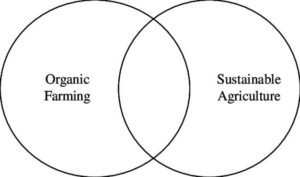
| S.No | Organic Agriculture | Sustainable Agriculture |
| 1 | It focuses on the inputs used in production i.e non-GMO, no synthetic fertilisers, pesticides and herbicides. | It focuses on the physical treatment of the land i.e No-till, cover crops and buffer zones. |
| 2 | It requires additional tillage for weed management. | It prohibits the use of tillage to prevent soil erosion. |
| 3 | Implementation is costly, but it produces good returns. Foods like Organic corn and Organic soybeans earn double than their conventional counterparts, but are offset by the yields that are 25 to 35% lower and this lower yield can be a problem for the huge demand of the products. | It doesn’t produce good returns, but the yield is approximately equal or higher than conventional farms. |
| 4 | Farmers confine their animals and still get Organic certification. | Animals are permitted to carry out their natural behaviours such as rooting, pecking or grazing. |
| 5 | Antibiotics cannot be fed to Organic certified livestock. | Antibiotics use is restricted, and can be used only when they run out of the animal’s system before selling its meat or milk. |
| 6 | No artificial hormones are added. | No artificial hormones are added. |
| 7 | The use of fossil fuels for transportation of foods to far off places are not taken into consideration. | The products are distributed and sold to local communities as far as possible to reduce the use of fossil fuels. |
| 8 | Chemical fertilisers, pesticides, herbicides or any type of additives are avoided. | The inputs totally depend upon the needs and overall sustainability. |
| 9 | It uses Organic inputs only such as Organic manure, mulching, green manure, botanical extracts, etc. | It uses Organic inputs such as Organic manure, mulching, green manure, botanical extracts, etc. if they benefit sustainability. |
| 10 | It is a state of standard commercial farming rules | This Agriculture is based on the health of the soil, water efficiency, energy efficiency, labour conditions, biodiversity etc. |
How to do crop planning in organic agriculture? Read more
Organic Agriculture = Sustainable Agriculture ?
Organic Farming is mistaken to be sustainable, but is it really so? Let’s find out.
- Organic farming contributes to sustainable Agriculture as most of the Organic farms follow sustainable practises, yet Organic products can also be produced on farms which are not sustainable and sustainable farming doesn’t need to be 100% Organic.
- Organic farming is associated with the safety of food, being environment friendly and following ethical farming practises, but in recent years it has been doubted for its sustainability because it is facing challenges in feeding the ever growing Global population and their increased food demand.
- Organic farming does not use chemical fertilisers and requires more land to produce the same amount of crops that can be grown in conventional farms. This can lead to deforestation leading to more greenhouse gas emissions and contributing to global warming.
- Organic farming practises tillage which can deplete the nutrients and can lead to soil erosion and it can also remove the top layer of the soil resulting in the depletion of beneficial microorganisms which can lead to loss in productivity and due to the decreased yield, it could be unsustainable
Conclusion
We have seen both the types of farming and the distinguishing feature between sustainable Agriculture and Organic Agriculture is that Sustainable Agriculture is a way of feeding the world without damaging the environment or threatening human health but Organic Agriculture is such type of farming which produces food using Organic methods and can sustain the farm yields and productivity for more generations to come.
Best method to convert your farm into organic farm. Read more
Sustainable farming involves a more holistic approach than Organic farming as it focuses on addressing Global sustainability goals. Both are different concepts, as Organic isn’t necessarily Sustainable and vice versa. Sustainable farming is able to continue living off the land without even depleting the natural resources and running the earth but for being sustainable farmers need to import their business. Organic farming on the other hand has numerous benefits but it needs to be revolutionised to meet the growing demands of the Global population and the environment.

